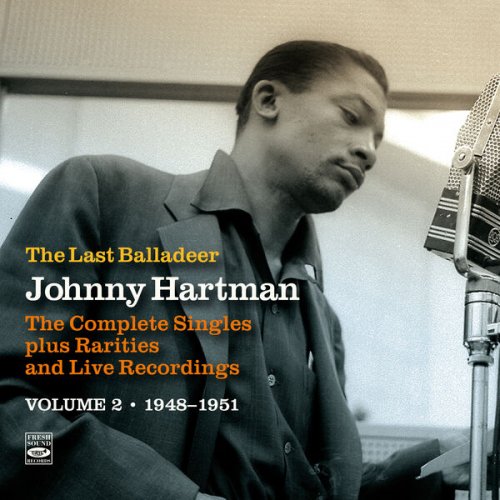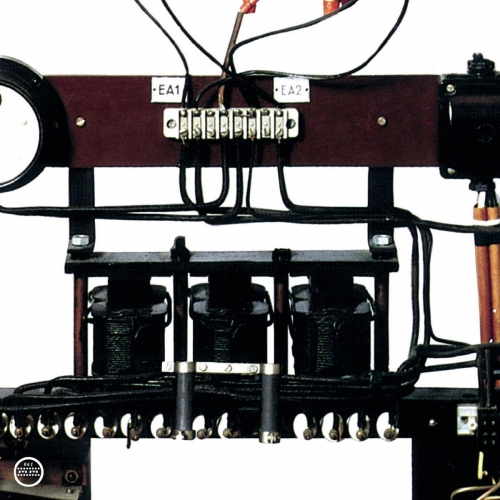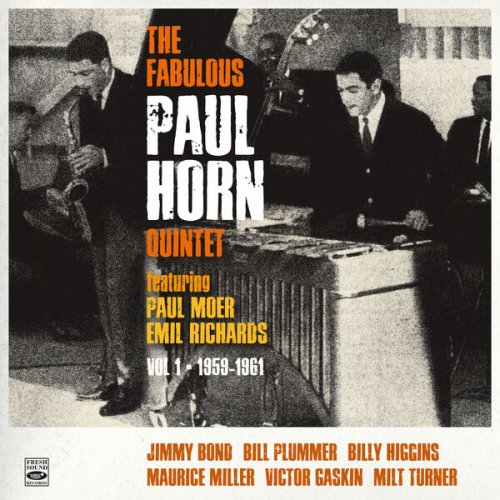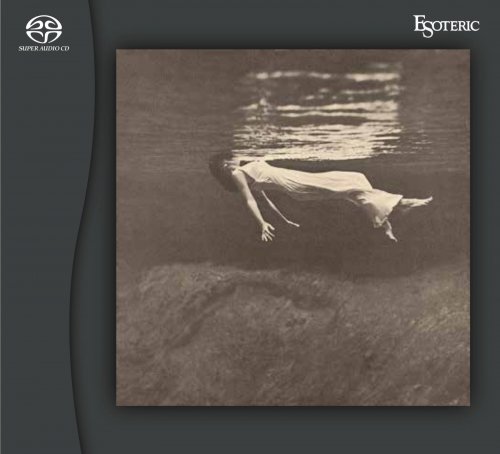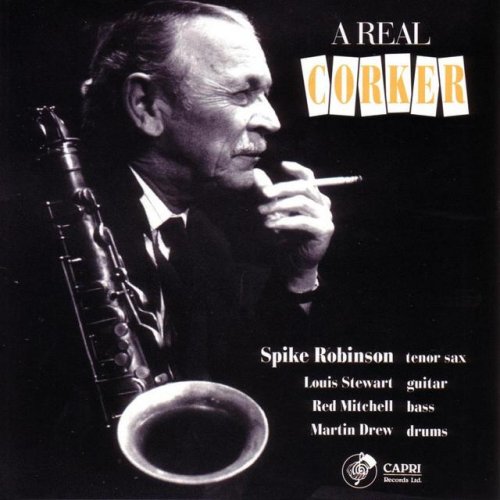Art Blakey & The Jazz Messengers - The Witch Doctor (1967/2021) [24bit FLAC]
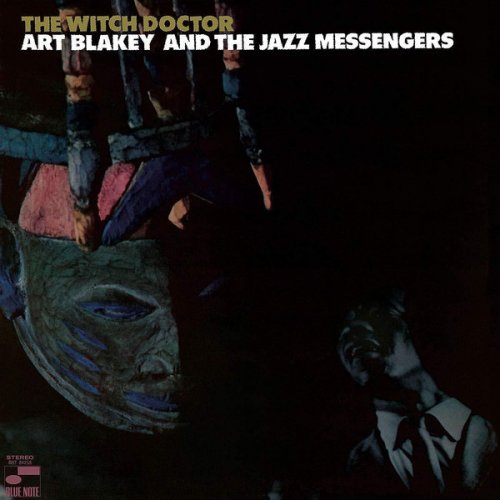
Artist: Art Blakey & The Jazz Messengers
Title: The Witch Doctor
Year Of Release: 1967
Label: Blue Note Records – B0032875-01 / Vinyl, LP
Genre: Jazz
Quality: FLAC (tracks) / 24bit-192kHz FLAC (tracks)
Total Time: 35:10
Total Size: 232 MB / 1.45 GB
WebSite: Album Preview
Tracklist:Title: The Witch Doctor
Year Of Release: 1967
Label: Blue Note Records – B0032875-01 / Vinyl, LP
Genre: Jazz
Quality: FLAC (tracks) / 24bit-192kHz FLAC (tracks)
Total Time: 35:10
Total Size: 232 MB / 1.45 GB
WebSite: Album Preview
01. The Witch Doctor (5:34)
02. Afrique (7:00)
03. Those Who Sit And Wait (5:56)
04. A Little Busy (6:18)
05. Joelle (5:16)
06. Lost And Found (5:09)
The Witch Doctor was recorded March 14, 1961. Blue Note has included an alternate take of "The Witch Doctor" with a slightly brighter tempo. While Shorter’s solo is more intense, Morgan’s isn’t as inspired as the original take. In all, however, the two takes of "The Witch Doctor" make excellent bookends for this reissue. Both "The Witch Doctor" and "Afrique" are Lee Morgan’s compositions. Art Blakey encouraged all of his Jazz Messengers to write, and the years (Blakey passed away in 1990) brought quite a few significant jazz composers into direct contact with his tutelage. Two tracks on this album are from Shorter and one is by Timmons. "A Little Busy" swings like his more-famous "Moanin’," "This Here" and "Dat Dere." On this one Blakey is a little busy with consistent press rolls and such while the pianist swings heartily. Blakey takes an extended drum solo on "Afrique" that demonstrates his power and melodic sense. Fours between leader and band take place several times on different tracks, and a drum "storm" arrives for "Those Who Sit and Wait." The session swings from start to finish with moderate tempos, a walking bass, and a drummer-led snare drum pattern that combines Blakey’s constant ride cymbal behind his more powerful drum attack.
Into the third year of utilizing late-'20s superstars trumpeter Lee Morgan and tenor saxophonist Wayne Shorter on the front line, Art Blakey's Jazz Messengers were showing a progressive compositional stance, mostly due to the emerging creativity of Shorter's sharply off-minor ideas. Pianist Bobby Timmons, a peer of the front liners, is swimming somewhere in the middle of this stylistic lake, exhibiting soulful backstrokes, straight-ahead sprinting, and the angular chordal complexities or sudden changes any potpourri of modernities might offer. Faithful bassist Jymie Merritt, no young pup at the time (seven years Blakey's junior) is solid, unspectacular, and right where this band of stars needed him to be. Writing chores continue to be split evenly between the horn players, but Shorter's pieces are distinct with a difference. "Those Who Sit and Wait" is a classic hard bop line with opposing non-sequitur melody/harmony cross sections, while "Joelle" sports two piano chords from Timmons leading to unusual phrasings, but still in a hard bop stance. Morgan contributes the title track and an alternate take with its typical and reliable hard bop shuffle buoying quirky horn and piano exchanges, and the spectacular "Afrique" with a 6/8 modal, choppy clave Latin beat merging to easy swing from the heavy tenor of Shorter -- the best of three worlds. Timmons contributes "A Little Busy" which is not far removed from the soul-jazz he is known for, a fun and funky groove biscuit where the pianist is truly in his element. "Lost & Found," penned by Clifford Jordan, showcases the straight-ahead signature sound the Jazz Messengers mined for decades -- upbeat, happy and tight. Whether this was or was not the pinnacle for this great band is still up for debate, but it assuredly ranks with Blakey's personal best aside from the popular album Moanin' of the same time frame.
Into the third year of utilizing late-'20s superstars trumpeter Lee Morgan and tenor saxophonist Wayne Shorter on the front line, Art Blakey's Jazz Messengers were showing a progressive compositional stance, mostly due to the emerging creativity of Shorter's sharply off-minor ideas. Pianist Bobby Timmons, a peer of the front liners, is swimming somewhere in the middle of this stylistic lake, exhibiting soulful backstrokes, straight-ahead sprinting, and the angular chordal complexities or sudden changes any potpourri of modernities might offer. Faithful bassist Jymie Merritt, no young pup at the time (seven years Blakey's junior) is solid, unspectacular, and right where this band of stars needed him to be. Writing chores continue to be split evenly between the horn players, but Shorter's pieces are distinct with a difference. "Those Who Sit and Wait" is a classic hard bop line with opposing non-sequitur melody/harmony cross sections, while "Joelle" sports two piano chords from Timmons leading to unusual phrasings, but still in a hard bop stance. Morgan contributes the title track and an alternate take with its typical and reliable hard bop shuffle buoying quirky horn and piano exchanges, and the spectacular "Afrique" with a 6/8 modal, choppy clave Latin beat merging to easy swing from the heavy tenor of Shorter -- the best of three worlds. Timmons contributes "A Little Busy" which is not far removed from the soul-jazz he is known for, a fun and funky groove biscuit where the pianist is truly in his element. "Lost & Found," penned by Clifford Jordan, showcases the straight-ahead signature sound the Jazz Messengers mined for decades -- upbeat, happy and tight. Whether this was or was not the pinnacle for this great band is still up for debate, but it assuredly ranks with Blakey's personal best aside from the popular album Moanin' of the same time frame.

